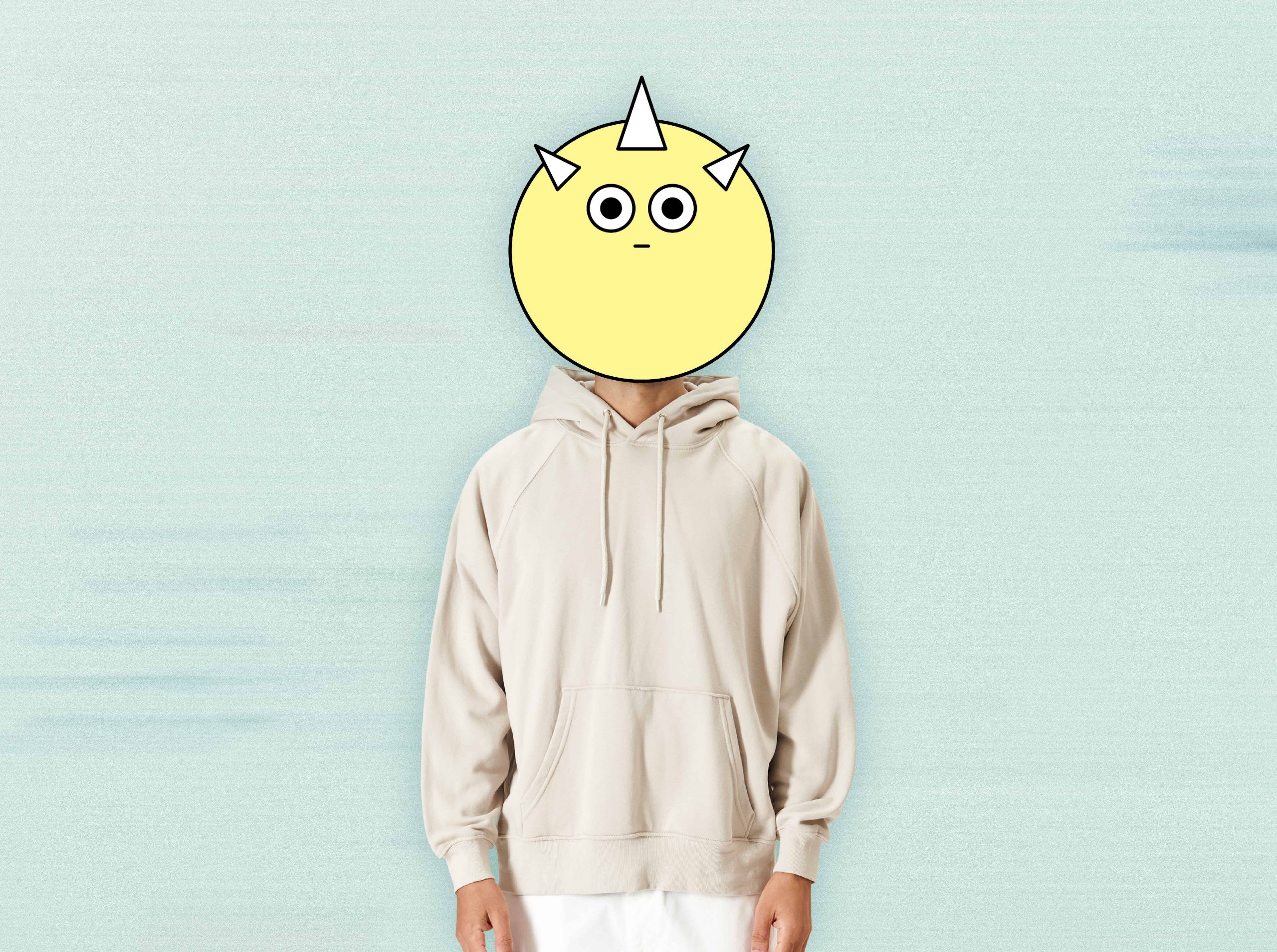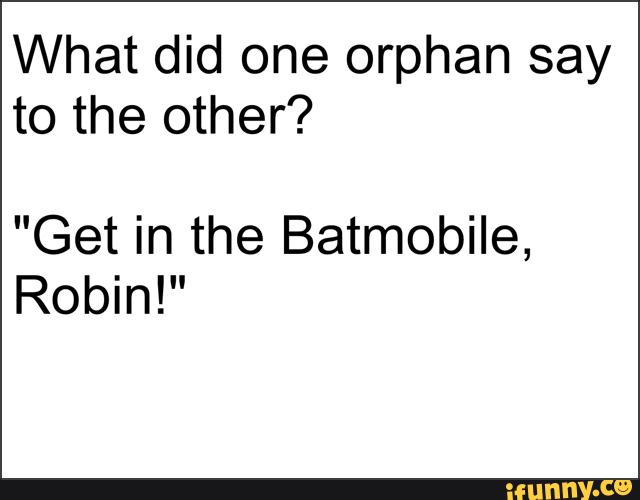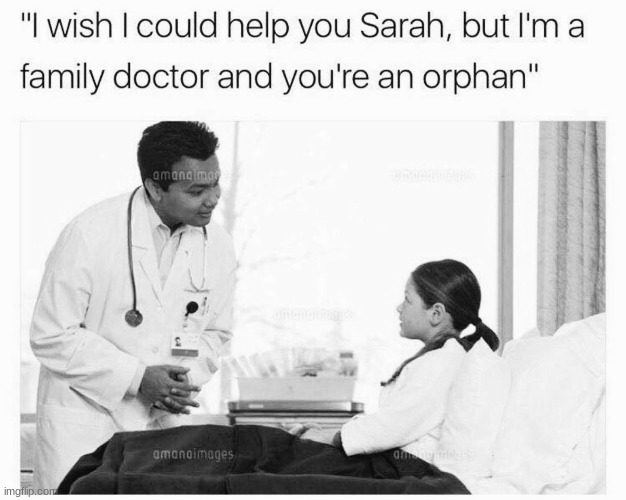You might be wondering why people find humor in the darkest corners of life. Orphan jokes, for instance, have long been a controversial topic in the world of dark humor. They push boundaries, challenge sensitivities, and spark heated debates. But why do we laugh at things that hurt? Let’s dive into this intriguing subject and uncover the psychology behind orphan jokes and dark humor.
Dark humor is not for everyone, and orphan jokes are no exception. Some people cringe at the mere mention of them, while others find them hilariously cathartic. The truth is, humor has a way of helping us cope with life’s toughest realities. And sometimes, laughing at the absurdity of it all is the only way to survive.
Now, before we go any further, let’s get one thing straight: this article is not here to offend anyone. It’s here to explore the complexities of humor, understand its role in our lives, and shed light on why some people find joy in the darkest jokes. So, grab a cup of coffee, sit back, and let’s get into it.
Read also:Amaro Landscape Associates The Ultimate Guide To Elevating Your Outdoor Spaces
What Are Orphan Jokes and Why Do They Exist?
Orphan jokes are a subset of dark humor that revolves around the theme of losing parents or being abandoned. They often carry a morbid tone and can be unsettling for many. But why do they exist in the first place? To understand this, we need to look at the psychology of humor and how it intersects with our emotions.
Dark humor, including orphan jokes, serves as a coping mechanism for some individuals. It allows them to confront their fears, anxieties, and even traumas in a lighthearted way. While it may seem inappropriate to some, others view it as a way to process difficult emotions and find solidarity in shared experiences.
Why Do People Laugh at Orphan Jokes?
Laughing at orphan jokes might seem counterintuitive, but there’s a scientific explanation behind it. According to psychologists, laughter is a natural response to stress and discomfort. When we hear an orphan joke, our brain processes the absurdity of the situation and finds a way to diffuse the tension through humor.
Here’s a quick breakdown:
- Incongruity Theory: Orphan jokes often present unexpected twists that clash with societal norms, making them funny to those who appreciate the absurd.
- Relief Theory: Laughing at dark humor can provide a sense of relief by releasing pent-up emotions.
- Superiority Theory: Some people laugh at orphan jokes because they feel superior to the situation, believing they could never be in such a predicament.
The Psychology Behind Dark Humor
Dark humor, including orphan jokes, taps into the deepest corners of human psychology. It challenges our moral compass and forces us to confront uncomfortable truths. But what makes someone gravitate toward dark humor over traditional forms of comedy?
Research suggests that individuals who enjoy dark humor tend to have higher levels of intelligence and emotional resilience. They are often more open-minded and less easily offended. In essence, they see humor as a tool for navigating life’s complexities rather than avoiding them.
Read also:Meet The Enigmatic Taraka Ratna Wife Her Journey Secrets And Inspiring Life
Is Dark Humor Healthy?
While dark humor might seem inappropriate on the surface, it can actually be beneficial for mental health. It helps people process grief, trauma, and other heavy emotions in a constructive way. However, it’s important to note that dark humor isn’t a one-size-fits-all solution. What works for one person might not work for another.
Here are some potential benefits of embracing dark humor:
- It fosters emotional resilience by encouraging people to face their fears head-on.
- It creates a sense of community among those who share similar experiences.
- It provides a unique form of catharsis that traditional humor might not offer.
Orphan Jokes: A Historical Perspective
Believe it or not, orphan jokes have been around for centuries. They’ve evolved alongside society, reflecting the cultural norms and values of each era. In the past, orphan jokes were often used as a way to highlight social inequalities and bring attention to the plight of abandoned children.
Today, orphan jokes have taken on a more lighthearted tone, but they still carry a weighty message. They remind us of the importance of empathy and compassion, even when we’re laughing at the absurdity of life.
How Have Orphan Jokes Changed Over Time?
The evolution of orphan jokes mirrors the changing attitudes toward humor and tragedy. In the past, they were often crude and offensive, but modern interpretations tend to be more nuanced and thought-provoking. Here’s a brief timeline:
- 18th Century: Orphan jokes were used as a form of social commentary, highlighting the struggles of the working class.
- 19th Century: They became more widespread, thanks to the rise of printed media and the popularity of satirical publications.
- 20th Century: Orphan jokes found their way into mainstream comedy, with comedians like Lenny Bruce pushing the boundaries of what was considered acceptable.
- 21st Century: Today, orphan jokes are shared online, sparking debates about free speech, sensitivity, and the role of humor in modern society.
Controversies Surrounding Orphan Jokes
Like any form of dark humor, orphan jokes are not without controversy. Critics argue that they perpetuate negative stereotypes and trivialize real-life tragedies. On the other hand, proponents claim that they offer a much-needed outlet for processing difficult emotions.
So, who’s right? The answer lies in the context and intent behind the joke. If the goal is to mock and belittle, then it’s unlikely to be well-received. But if the intent is to spark conversation and foster understanding, then orphan jokes can serve a valuable purpose.
When Does Dark Humor Cross the Line?
Knowing when to draw the line is crucial when it comes to dark humor. While orphan jokes can be funny to some, they can also be deeply hurtful to others. Here are a few guidelines to keep in mind:
- Respect Boundaries: Not everyone will find orphan jokes amusing, so it’s important to gauge your audience before cracking one.
- Avoid Stereotyping: Jokes that perpetuate harmful stereotypes about orphans or any marginalized group should be avoided.
- Be Mindful of Timing: Context matters. Telling an orphan joke at a funeral, for example, might not be the best idea.
Orphan Jokes and Mental Health
For many, orphan jokes are more than just a form of entertainment. They serve as a coping mechanism for dealing with grief, loss, and trauma. By laughing at the absurdity of life, individuals can distance themselves from their pain and find a sense of relief.
However, it’s important to recognize that humor isn’t a substitute for professional help. If you or someone you know is struggling with mental health issues, it’s crucial to seek support from a qualified therapist or counselor.
Can Humor Replace Therapy?
While humor can provide temporary relief, it shouldn’t be relied upon as the sole method for addressing mental health concerns. Therapy offers a structured approach to healing that humor alone cannot replicate. That being said, incorporating humor into therapy sessions can enhance the therapeutic process and make it more enjoyable for clients.
Examples of Orphan Jokes and Their Impact
Let’s take a look at some popular orphan jokes and analyze their impact on society. Keep in mind that these jokes are meant to provoke thought and discussion, not to offend or hurt anyone.
Example 1: Why did the orphan go to space?
Because they needed to find a place where no one could hear them cry!
Example 2: What do you call an orphan who becomes a detective?
A clueless kid!
These jokes might seem insensitive at first glance, but they often carry deeper meanings that encourage us to reflect on our own biases and assumptions.
How Do Orphan Jokes Affect Society?
Orphan jokes, like all forms of dark humor, have the power to shape societal attitudes and beliefs. They challenge us to think critically about the world around us and question the status quo. However, they can also reinforce negative stereotypes if not handled with care.
Orphan Jokes in Popular Culture
From movies to TV shows, orphan jokes have made their way into mainstream media. They’ve been used to add depth to characters, highlight social issues, and provide comic relief in otherwise serious situations. Some of the most memorable orphan jokes come from classic comedians and modern-day comedians alike.
For instance, in the hit TV show "The Office," character Dwight Schrute famously quips, "I don’t need friends; I have a cat and a gun." While not directly an orphan joke, it highlights the struggles of isolation and loneliness that many orphans face.
Which Comedians Are Known for Orphan Jokes?
Several comedians have made a name for themselves by embracing dark humor, including orphan jokes. Here are a few notable examples:
- Lenny Bruce: A pioneer of dark humor, Lenny Bruce often tackled taboo subjects in his comedy routines.
- George Carlin: Known for his sharp wit and social commentary, George Carlin wasn’t afraid to push the boundaries of comedy.
- Eddie Izzard: This British comedian has a unique style that blends dark humor with absurdity, making his orphan jokes both thought-provoking and hilarious.
Conclusion: Embracing the Dark Side of Humor
In conclusion, orphan jokes and dark humor, in general, play an important role in our lives. They help us process difficult emotions, challenge societal norms, and find solidarity in shared experiences. While they may not be for everyone, they offer a unique perspective on life that can be both enlightening and entertaining.
So, the next time you hear an orphan joke, take a moment to consider its intent and impact. If it’s meant to spark conversation and foster understanding, then it might just be worth a laugh. But if it’s intended to hurt or offend, then it’s probably best left unsaid.
And remember, humor is just one tool in our emotional toolkit. It’s not a replacement for empathy, compassion, or professional help. So, laugh when you can, but don’t forget to reach out if you need support.
Table of Contents
- What Are Orphan Jokes and Why Do They Exist?
- The Psychology Behind Dark Humor
- Orphan Jokes: A Historical Perspective
- Controversies Surrounding Orphan Jokes
- Orphan Jokes and Mental Health
- Examples of Orphan Jokes and Their Impact
- Orphan Jokes in Popular Culture
- Conclusion: Embracing the Dark Side of Humor


